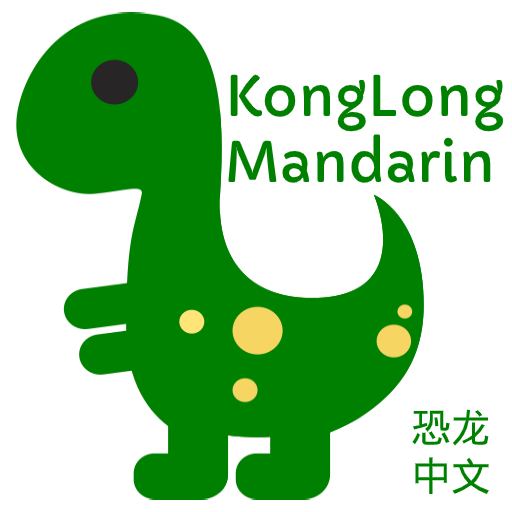Mandarin transcript (in pinyin and characters) for Peppa Pig S01E03 “Best Friend” Part 6 (final):
- chī bǐnggān
- shìde, zhèshì gěi qiáozhì de
- zhèshì néng zhìhǎo tā bìng de yào
- bùhǎoyìsi, yīshēng, nǐ néng bāng wǒ ma?
- wǒ dùzi yǒudiǎn bùshūfu
- hǎo yǎng ā
- wǒ tīngdào nǐde dùzi zài xiǎng ne
- wǒ xiǎng nǐ shì è le, bàba
- wǒ xūyào chī hěnduō de bǐnggān
- nàyàng wǒ huì hǎo yìdiǎnr
- háiyǒu wǒ
- 吃饼干
- 是的,这是给乔治的
- 这是能治好他病的药
- 不好意思,医生,你能帮我吗?
- 我肚子有点不舒服
- 好痒啊
- 我听到你的肚子在响呢
- 我想你是饿了,爸爸
- 我需要吃很多的饼干
- 那样我会好一点儿
- 还有我
The video player above requires Javascript to run properly. You can binge-watch the full video on the official Peppa Pig Chinese Dub Youtube channel.
Show Notes for Learn Chinese with Peppa Pig Season 01 Episode 03 Part 6
chī bǐnggān
吃饼干
Let’s eat cookies!
- 吃 = chī, eat.
- 饼干 = bǐnggān, cookies.
shìde, zhèshì gěi qiáozhì de
是的,这是给乔治的
Yes, this is for Qiao2zhi4
- 是的 = shìde, yes
- 这是 = zhèshì, this is
- 给 = gěi, for, to give.
- 乔治 = qiáozhì, the Chinese name of Peppa’s brother George.
- 的(饼干)= de (bǐnggān), indicates belonging. qiáozhì de means it’s qiáozhì’s. In this sentence the object bǐnggān is omitted.
zhèshì néng zhìhǎo tā bìng de yào
这是能治好他病的药
This is the medicine that could cure him.
- 能 = néng, able to
- 治好 = zhìhǎo, cure
- 他 = tā, he. In this context it refers to 他的, or his. 的 = de is omitted.
- 病 = bìng, illness
- 药 = yào, medicine
bùhǎoyìsi, yīshēng, nǐ néng bāng wǒ ma?
不好意思,医生,你能帮我吗?
Excuse me, doctor, can you help me?
- 不好意思 = bùhǎoyìsi, excuse me. Read about 不好意思 further in my deep-dive article.
- 医生 = yīshēng, doctor
- people + 能 + verb + 吗 is a common structure to ask if somebody can do something.
- 帮 = bāng, help
- 我 = wǒ, I
- 吗 = ma, a light sound at the end of questions
wǒ dùzi yǒudiǎn bùshūfu
我肚子有点不舒服。
I have a stomachache.
- 肚子 = dùzi, tummy
- 有点 = yǒudiǎn, a little bit
- 不 = bù, not
- 舒服 = shūfu, comfortable.
- 不舒服 = bùshūfu, uncomfortable. This can be used to describe things that are uncomfortable physically or psychologically. For example,
- 身体不舒服 = shēntǐ bú shūfú means body feels unwell.
- 他让人不舒服 = tā ràng rén bú shūfú means he makes people uncomfortable.
hǎo yǎng ā
好痒啊
It’s very ticklish.
- 好 = hǎo, very
- 痒 = yǎng, ticklish
wǒ tīngdào nǐde dùzi zài xiǎng ne
我听到你的肚子在响呢
I heard your tummy rumbling.
- 听 = tīng, hear
- 听到 = tīngdào, heard
- 在 = zài, doing something
- 响 = xiǎng, make sound, rumble in the context of being hungry
- 呢 = ne, a colloquial expression used at the end of the sentence to emphasize “it’s true”.
wǒ xiǎng nǐ shì è le, bàba
我想你是饿了,爸爸
I think you got hungry, dad.
- 想 = xiǎng, think
- 饿 = è, hungry.
- 饿了= èle, hungry. You may wonder why there is a 了 in the end. You could think of it as got/became + verb. Some more examples: 我困了 = wǒ kùnle, I’m sleepy. 我渴了 = wǒ kěle, I’m thirsty. 我累了 = Wǒ lèile, I’m tired.
- 爸爸 = bàba, dad
wǒ xūyào chī hěnduō de bǐnggān
我需要吃很多的饼干
I need to eat lots of cookies.
- 需要 = xūyào, need to
- 很多 = hěnduō, plenty
- 很多的 = hěnduō de, plenty of
nàyàng wǒ huì hǎo yìdiǎnr
那样我会好一点儿
Then I’d be feeling better.
- 那样 = nàyàng, (if I do that) then
- 会 = huì, will
- 好 = hǎo, good
- 会好 = huì hǎo, get better
- 一点儿, the same as 一点. Read about how to use er-coloring in my focused article.
háiyǒu wǒ
还有我
Also me!
- 还有 = háiyǒu, also

3 thoughts on “Learn Mandarin: Peppa Pig S01E03 Part 6”